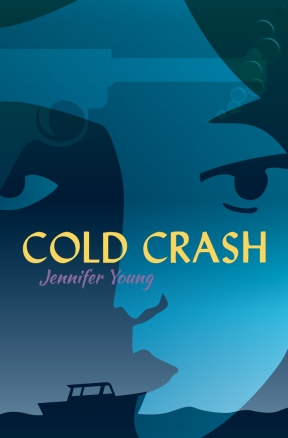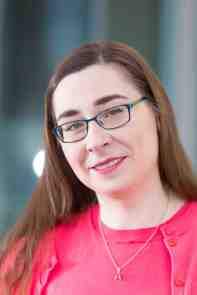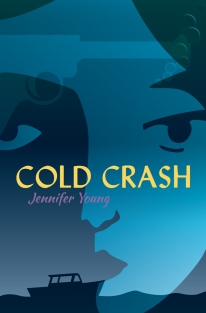I’m so pleased to have award winning novelist Jennifer Young on Mystery Mondays. She’s here to talk to us about researching historical fiction – something I’m in awe of.
Hot off the press: Cold Crash (eBook Edition) is free today on Amazon. Why not check it out and post a review for Jennifer?
Researching Tips for Historical Fiction

When I started writing Cold Crash, I looked online for music that came out in early spring 1952. I found ‘Tenderly’ by Rosemary Clooney, and it played on a continual loop as I wrote the first chapters of Max Falkland’s story. It even found its way into what eventually became chapter twelve.
As I researched further though, I found that while ‘Tenderly’ came out in the United States in spring 1952, Rosemary Clooney didn’t release any records until years later in the United Kingdom. Max Falkland lived in the UK, so I had a problem. Fortunately, Max is Anglo-American, so I simply added a reference to her grandmother posting the record to her from America.
I told this story at a reading I did last week, and another author and friend Helen Gordon asked if I ever fudged my historical details, pointing out that my obsession with historical accuracy sounded more like creative nonfiction than fiction. Cold Crash is undoubtedly fiction – I’ve never flown a plane and I’m certainly not an archaeologist – but the facts represented in the novel are as accurate as I can make them.
Coming from an academic background, I consider it vital to get those details right. I love reading historical fiction, and I adore the details of the past that makes the world rich and compelling. I don’t want to be distracted from the mystery or character development by wondering if one tidbit of information is correct. It’s very easy to get overwhelmed with research. Here’s some advice from my experience researching and writing about spring 1952.
Research broad brush stroke history first. I started with overviews of the 1950s – reading books ranging from Robert Opie’s 1950s Scrapbook to Jessica Mann’s The Fifties Mystique. I also read about the Korean War. Max has just come out of mourning as the novel opens, for her brother who was shot down over Korea. (I had to supplement knowledge gleaned from a childhood of watching M*A*S*H!)
While you’re writing, don’t disappear into the internet to check one obscure fact. I did this far too regularly, and you end up wasting precious writing time. You can always correct a historical fact, but if you never write, you have nothing to correct! In one case in Cold Crash, I left a mistaken detail in place. Max’s friend Emma says it’s nice to bake scones with dried fruit again, when Max has provided it. In April 1952, dried fruit was off rationing, but I decided to leave the dialogue in, as Emma doesn’t have the money to splurge on dried fruit.
If you have an area that particularly interests you, save that for last. It sounds counterintuitive – it might have been the reason you chose your historical period. However, a real danger exists that you will research that one area forever, and never write. I deliberately chose to do this with fashion. After I had a complete first draft of the novel, I went to the British Library and poured over fashion magazines for 1952. I loved looking at Harper’s Bazaar and Vogue issues, the very ones that Max would have read, seeing the ads she would have seen. It felt almost like shopping – I needed a ball gown for this scene, a dinner dress for this one.
This worked well for other areas too. Train travel is not my passion, but I knew I needed details of both the look of the LMS trains from London to Oban. An Illustrated History of LMS Coaches gave me pictures of the upholstery on the LMS train line, as well as the sleeping compartments. The microfiche version of Bradshaw’s Guide allowed me to find out the timetable of trains going between London and Oban – and that the reverse train didn’t run on weekends at all. I reorganised the timings of the novel to allow Max to travel on a Friday. Would anyone have checked? Probably not, but that detail mattered to me.
My final piece of advice is to enjoy the research – and also take it seriously!
Who is Jennifer Young?
 Jennifer Young was born in a small textile town in North Carolina, USA and moved to the UK in 2001. She has since completed a PhD, become the daughter-in-law of a Catholic priest and gained British citizenship. Her degrees are from the University of North Carolina Chapel Hill, Cardiff University and the University of Southampton. She is a Senior Lecturer in Creative Writing and an Associate Dean of the School of Humanities at the University of Hertfordshire. Jennifer lives in North London with her husband and daughter.
Jennifer Young was born in a small textile town in North Carolina, USA and moved to the UK in 2001. She has since completed a PhD, become the daughter-in-law of a Catholic priest and gained British citizenship. Her degrees are from the University of North Carolina Chapel Hill, Cardiff University and the University of Southampton. She is a Senior Lecturer in Creative Writing and an Associate Dean of the School of Humanities at the University of Hertfordshire. Jennifer lives in North London with her husband and daughter.
Her novel Cold Crash won the Cinnamon Press Debut Novel Prize.
@maxfalkland
https://www.facebook.com/ArchaeologyandEspionage/
Buy Cold Crash
Cold Crash
For archaeologist Maxine ‘Max’ Falkland, life in early-50s London is difficult enough as  she tries to move on from the death of her brother, an RAF pilot shot down over Korea. But, when she meets John Knox things get more complicated — before they get outright dangerous.
she tries to move on from the death of her brother, an RAF pilot shot down over Korea. But, when she meets John Knox things get more complicated — before they get outright dangerous.
Flying her light plane to Scotland, Max overhears whispered arguments in Russian coming from the next-door room and sees lights across the moors that appear to answer flashes from the sea. Add the mysterious malfunction of her plane and she has a lot to confide when she encounters the enigmatic Richard Ash, a local landowner and recluse. But when Knox unexpectedly reappears and a dive goes disastrously wrong, Max must act fast as she finds herself in the middle of a Soviet military plot.
Cold Crash is the first of four novels that follows Max through archaeology and espionage from 1952 to 1953.
Thanks for reading…


Interesting post. I love doing research but you are correct, it’s easy for it to become an addictive time suck! Good luck with your release.
LikeLiked by 1 person
It certainly is! There are definitely times it’s more fun to sit in the library or browse the internet than it is to write. What techniques have you found that work?
Thanks so much!
LikeLiked by 1 person
You have to limit the amount of time each day…there’s just no other way!
LikeLiked by 1 person
It’s so hard to limit time for something that’s fun and entertains the brain! Sometimes I feel guilty about the amount of time I spend writing just because I love it so much.
LikeLike
I found I became more efficient as a writer and a researcher when I had a child – the constraints I had at home meant I was more careful with my working time! I also write and edit on my phone, so I can have it with me all the time. (I do proper editing on a computer too though.)
LikeLiked by 1 person
Thanks. Have made a copy for the future
LikeLiked by 1 person
Hi Colleen, that’s great. I love it when authors get value from Mystery Mondays.
LikeLike
Thanks, Colleen!
LikeLiked by 1 person
Helpful advice. One advantage of doing the broad research first is that unexpected facts yield great ideas for both plot and characters.
LikeLiked by 1 person
Definitely. I got a whole series plot point from doing my broad research!
LikeLiked by 1 person
Reblogged this on e. michael helms and commented:
From Mystery Author/Blogger Kristina Stanley —-
LikeLiked by 1 person
Thank you, Michael.
LikeLike
Thank you, Michael!
LikeLiked by 1 person
Wonderful post! I spent a few years researching my Civil War/Reconstruction family saga (based on a real family and events near where I grew up in the FL panhandle). Having a military/combat background helped immensely with the battle scenes and everyday life of the foot soldier. I traveled to many battlefields, following the footsteps of my two protagonists (brothers who fought on opposite sides of the war). Walking over the very ground they tread during battle was quite an experience, and also gave me a good “sense” of the land they fought over. Getting it as “right” as possible is the key to historical fiction. 🙂
–Michael
LikeLiked by 1 person
Thanks! Walking the land can be so important. I also found it useful to talk to real archaeologists as part of my research. Especially since I don’t have an archaeology background!
LikeLiked by 1 person
Thanks for this post.
Laurie Mueller
>
LikeLiked by 1 person
Hi Laurie, thanks for stopping by.
LikeLike
Thank you for reading!
LikeLiked by 1 person
Jennifer, I’m loving Cold Crash! And these are great tips for historical research and time management. I always write with a notepad on my desk, and when I come something that should be verified, I make a note and insert a reference number in my writing (so I can find the spot again). Later on, I’ll do my homework and clean up the historical details in my work. You did a lot more footwork. Did you keep a file of your research just for future reference?
LikeLiked by 1 person
Hi Jennifer, I’ve got Cold Crash on my kindle and looking forward to reading it!
LikeLiked by 1 person
Thanks, Kristina!
LikeLiked by 1 person
Wow, a reference number is a great idea – that’s amazingly organised! I take a lot of photos, and I have a file for my research photos. I also keep a file for written notes. And in a very non-organised way, I write notes to myself in the text like ‘check rationing’.
At the moment, I’m trying to find steam ship timetables for the third novel. So right now I have sentences that include ‘X’ for a specific detail, like the time a ship would arrive in Southampton. One of my last editing jobs is to search to make sure I’ve caught all the Xs!
LikeLiked by 2 people
It sounds more organized than it is. Numbers are just a way of ensuring that I catch all those “X” details. And don’t get me wrong, I still have a messy file full of oddly shaped scraps of nearly illegible notes with random bits of information that I may never need again (like the year and model of which car fringe characters drive, probably will never come up again, BUT just in case.)
LikeLiked by 1 person
It’s frustrating when you can’t put that perfect, carefully researched detail, isn’t it? But at least we’ve had the fun of finding it!
LikeLiked by 1 person
Wow, a reference number is a great idea – that’s amazingly organised! I take a lot of photos, and I have a file for my research photos. I also keep a file for written notes. And in a very non-organised way, I write notes to myself in the text like ‘check rationing’.
At the moment, I’m trying to find steam ship timetables for the third novel. So right now I have sentences that include ‘X’ for a specific detail, like the time a ship would arrive in Southampton. One of my last editing jobs is to search to make sure I’ve caught all the Xs!
LikeLiked by 1 person
Reblogged this on Author Don Massenzio and commented:
Author Jennifer Young is featured on Mystery Mondays with the topic of researching historical fiction from Kristina Stanley’s blog.
LikeLiked by 1 person
Thanks Don.
LikeLiked by 1 person
You’re welcome.
LikeLike
Thanks, Don!
LikeLiked by 1 person
You’re welcome.
LikeLiked by 1 person
Reblogged this on Musings on Life & Experience and commented:
A FREE copy of COLD CRASH and a thorough and helpful post on research for the writing of it by Jennifer Young.
LikeLiked by 1 person
Thanks, Patricia!
LikeLiked by 1 person
Thanks for sharing, Patricia!
LikeLiked by 1 person
Great advice, nothing I hate more than a historical where the author has played fast and loose with the period or especially the facts. Thank you for the suggestions, I too used the X method (Or actually XXX in my case) A simple search lets me double check and put in the correct info when the time comes. I used it today to see which side of the Temple of Isis in Pompeii the sun would go down on. Sure enough I had it wrong! I use a lot of maps, and have collected books over the years covering my favorite periods. Who knows when I will decide to place a piece of writing in one? I have large notebooks for my Numerius series, articles, notes pictures that I have gathered, some used in the books and some yet to be used, but they’re there and ready when I am. Thank you again, and good luck on COLD CRASH!
LikeLiked by 1 person
Thanks so much! It’s wonderful to find some bit of research and know you can save it for a future project, isn’t it? Your research sounds fascinating.
LikeLiked by 1 person